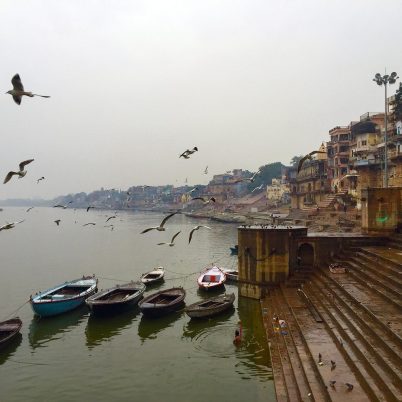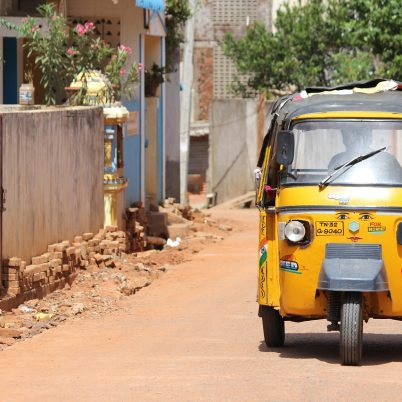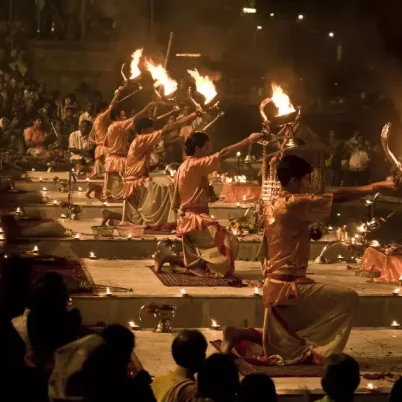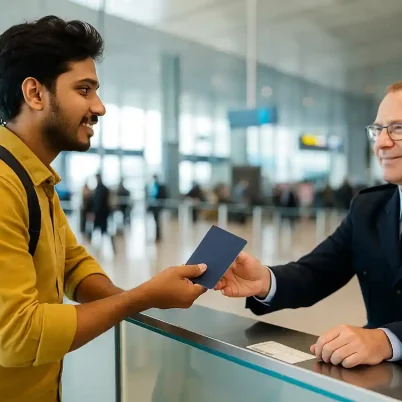
Money scams in India are a common problem. As beautiful as the country is, traveling here comes with its own share of ups and downs. From the moment you enter the country, you will come across scammers and touts looking for dishonest ways to earn some extra money. “How to avoid money scams in India: Tips for Foreigners” is an extensive guide on the different money scams that are common in India and how to avoid them and save your money. Read on to find out more!
What are the common money scams in India?
ATM scam
When you go to withdraw money from an ATM, someone might approach you and offer to help. These “helpers” usually have a device on them that lets them scan the details of your card. Once they know your ATM code, they can easily use your bank information to withdraw money.
How to avoid
- Try to avoid standalone ATMs. As much as possible, use ATMs inside or around banks.
- While typing your PIN, cover the keypad with your hand.
- Check the slot before using it.
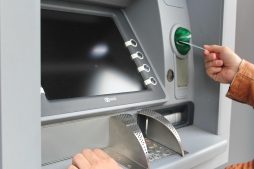
Currency exchange scam
You might find money exchange booths near tourist areas in India, where scammers pose as private money exchange agents, offering better exchange rates. They might use counterfeit notes or switch your cash with fake notes, or shortchange you.
How to avoid
- Exchange currency only at airport booths, banks, or authorized forex counters.
- Count your money carefully before leaving.
- It is a good idea to learn to identify the look and feel of Indian notes.
- If the exchange rate feels too good to be true, it probably is.
Fake currency
Tourists are generally not very familiar with the look and feel of the local currency, and many scammers take advantage of this fact. When you pay a large amount of money for something, the scammers might replace your money with counterfeit notes and accuse you of giving them a fake note.
How to avoid
- Learn the look and feel and security features of Indian currency notes.
- Keep your eyes on the person counting your money and don’t get distracted by anything else.
- Try to use smaller denominations when possible, since most scammers won’t go to great lengths to switch smaller notes.
- Once you have been given the change, check it then and there in front of them.
Overcharging for taxi or auto-rickshaw rides
This is one of the most common scams in India. When you hail a local taxi or tuk-tuk, drivers may quote exorbitant prices. While in many cities, vehicles run on a meter, drivers might claim it to be broken and ask you for a high price. Some drivers might take you along a longer route so that the meter shows increased fare, while some may claim that they don’t have any change.
How to avoid
- Use Uber or Ola apps to book a cab or auto-rickshaw.
- Keep change handy.
- If you need to take a local taxi or tuk-tuk, insist on using the meter.
- Do some research about the average fares.

Fake tickets
Many websites or local offices claim to sell flight or train tickets or travel packages at very cheap rates. After the payment is done, they may disappear or communicate via fake emails before going off the grid.
Similarly, while visiting popular monuments, you may find sellers outside selling “entry tickets” to see the attraction. These tickets are either fake or much more expensive than the official price. This takes place a lot near Taj Mahal and Qutub Minar.
How to avoid
- Book all your tickets via well-known platforms such as IRCTC, MakeMyTrip, or your travel agent.
- Never pay in full beforehand. Pay a small advance fee and the rest later.
- Verify the credentials, license, or registration number before buying any ticket.
Overcharging in shops or restaurants
Tourists are often charged a lot more than the local rate at shops or restaurants. This mostly happens at local markets or small shops, where bargaining is quite common.
How to avoid
- At restaurants, check the menu and confirm prices before ordering.
- Ask for the detailed bill.
- Pay digitally to avoid any confusion.
- At local shops, try to bargain politely, asking for a reasonable price.
- You can also compare prices in different places to get an idea about the general rates.
Fake products
A shopper’s paradise, India has many unique products you can take home as souvenirs. Luxurious textiles, antique items, jewelry, gems, leather goods, and handicrafts are a few of the things tourists look forward to buying. However, there are many cheap replicas of these items everywhere in the market, sold for a price cheaper than the authentic product, but still enough for them to earn a profit. They often look so real that you may not be able to differentiate.
How to avoid
- If you are buying expensive items like pashmina, carpets, or gems, you need to research thoroughly and find authentic shops selling them.
- Government emporiums or fixed price stores are okay to shop from.
- Avoid shops that your drivers recommend.
Fake guides
The guide scam is very common near historic and religious attractions which need tourist guides. Many scammers posing as tour guides lurk around such attractions, offering their services for a high price. Although they may have a basic knowledge of the monument, they might not have the credentials or expertise required to provide a genuine experience to tourists.
You might also get scammers telling you that the monument is closed, and they can take you on another tour instead. These guides may also take tourists to high-priced stores or restaurants, where they get a commission on every transaction.
How to avoid
- Check the monument timings at the official counters or online on the official website.
- If you need to hire a guide, do so through government counters.
- If someone pesters you to hire them, decline politely and move on.
Here is a guide to finding the right tour guide in India.
Fake charities or donations
You might find a lot of random strangers or beggars asking for charities, donations, or some money. Some might even ask for food or milk and take you to a shop. Usually, the shop-owners work with those people and sell their products at inflated prices. The profits they make are shared between them.
How to avoid
- Do not donate money to strangers.
- If someone comes asking you for money, politely say “no” and walk away. You can also tell them that you will donate directly to the NGO.
- If you want to help, you can donate online to verified charities and NGOs.
Hotel scam
This scam usually happens with tourists who take a pre-paid taxi from the airport to their hotel. On the way to the hotel, your cab driver might inform you that the hotel you booked is closed or not good, or some other lie to that effect. Then they may take you to some other hotel or a travel agent and earn a commission.
How to avoid
- Call your hotel directly and confirm.
- Verify the location of the hotel on Google Maps.
- Tell your driver to take you to the hotel regardless.
Spiritual and religious scams
You might find priests or guides around temples offering you access to a religious ceremony, rituals for luck or happiness, or spiritual guidance. They may also tie a bracelet or thread on your hand, or apply something on your forehead as a religious tradition. Find out what it will cost you first, because it is most definitely not free.
How to avoid
- Politely decline and walk ahead.
- If they have already performed their ritual, offer a fair small price. If they deny, you can simply start walking away.
Pickpocketing and theft
Pickpockets and thieves often lurk around crowded areas such as markets, bus stops, or train platforms and inside trains, as well as popular tourist sites. They might work in teams, as one person distracts you and the other stealthily steals your valuables.
How to avoid
- Stay aware of your surroundings at all times.
- Don’t carry your valuables with you. Just keep some cash on you and try to use digital payments most of the time.
- Do not engage too much with strangers.
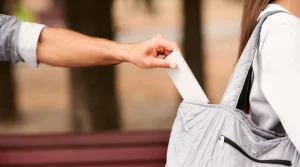
Common ways to avoid money scams in India
Use digital payments
As much as possible, use digital payments. This eliminates the hassle of constantly trying to find change, being extra wary of strangers, and anybody trying to scam you with counterfeit currency. Most large shops and restaurants accept cards and digital payments, so it should not be an issue.
Keep emergency cash
You will find some small shops that do not accept cards or any digital payments, or you may need to tip someone, or give a cab driver or tuk-tuk driver exact change. Sometimes your card may not work or digital payments may not load in low-network areas. For this reason, keep some emergency cash handy.

Set up email alerts
Make sure to set up email alerts in real time. You will be notified immediately when there is a transaction from your card or bank account or if your account details are being changed. This lets you act on it quickly by blocking your card and reporting the incident.
Stay alert
Be aware of your surroundings and stay alert at all times. Most scams are so executed so subtly that you may not even realize you are being taken for a ride. So stay alert and keep your valuables safe.
Research thoroughly
Research everything well before visiting India. By that, we mean not just the places and experiences, but also daily local hacks that you need to navigate the country. Check different forums and blogs, talk to your travel agent or hotel staff or someone you know and trust in India – it will be a great help.
Was this guide helpful? Let us know! At India Someday, we curate personalized itineraries for you based on your likes and requirements. Plan with us and save yourself all this hassle, since we will give you the best recommendations and help you navigate through India. Contact us and together we can plan the perfect trip to India for you!
Frequently Asked Questions
Here are some ways to stay safe from scammers: keep your valuables safe, do not engage with strangers more than necessary, research your destination thoroughly before visiting and be aware of the common scams, trust your instincts, and stay alert at all times.
Yes, getting your money back is a possibility. If there has been a fraud with your card or bank account, you need to immediately report to your bank, lodge a complaint on the cyber crime portal and file an FIR. If you have been scammed of some small cash, it might be more difficult to recover your money, although you should still file a complaint at the nearest police station.
Keep your phone in a secure pocket or crossbody bag. You can even attach it to a lanyard and hang it around your neck. Enable remote tracking feature and use biometric locks.
You are most likely to be pickpocketed in crowded places like buses, trains, bus stands, train stations, markets, busy streets, and popular tourist spots.
helping you travel your way
Everything you need to know about India is here We have tried writing about everything you may need help with for your trip to India, If you need help in planning a trip to India Get in touch with us to to plan your trip of a life time.




